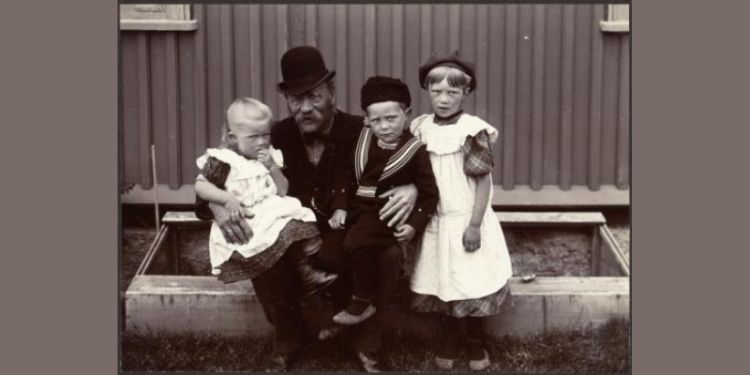Roundtable: Fathers, families, and investigating family lives

- Date: Tuesday 14 October 2025, 12:00 – 14:00
- Location: Michael Sadler Grant Room (3.11)
- Type: Seminar series, Seminars and lectures
- Cost: Free
A roundtable discussion organised by the Women, Gender and Sexuality research group in the School of History
How has family life changed over the past fifty years?
How do families interact with communities, societies and the state?
And how can historians better understand the complex dynamics around work, care, compassion and control that not only animate relations between family members but also shape broader societal expectations around what a ‘good’, happy or ‘normal’ family might involve?
This roundtable brings together three leading scholars of historical and contemporary family life to discuss these questions. Each of our speakers has broad interests in the history of the family; each also has a particular expertise on the history and sociology of fatherhood. To focus our discussion, we have asked each speaker to speak to the following:
- In the UK/northern Europe, how have gendered family and care roles changed in recent years? Are fathers more involved in their children's lives than they used to be?
- What kinds of data/methodologies/sources can get inside families and reveal the intimate and complex dynamics of how families operate?
- How do we navigate our own subjectivities in researching family life?
About the speakers
Cecile Bjerre (University of Southern Denmark)
Associate Professor Cecilie Bjerre is a historian at the University of Southern Denmark and a member of the Young Academy (Det Unge Akademi). She currently leads two projects on family history in Denmark. The first, Paternity in Denmark (PAID), explores the establishment of paternity and the role of technological and scientific developments in shaping fatherhood. The second, the Family Revolution: Experiences and Institutions (FREI), co-led with Professor Klaus Petersen, investigates the “lived family revolution” from 1960 to 1980 through a Citizen Science approach in which high school students conduct oral history interviews. Her research examines the intersections of family, law, and welfare in modern Denmark, with a particular focus on the cultural and political meanings of fatherhood.
Anna Tarrant
Professor Anna Tarrant is a sociologist at the University of Lincoln and a UKRI Future Leaders Fellow specialising in fatherhood, inequalities, and father-inclusion. She directs the Centre for Innovation in Fatherhood and Family Research and has been leading the UKRI funded study Following Young Fathers Further since 2020. Her publications include Fathering and Poverty: Uncovering Men's Family Participation in Low-income Families (Policy Press, 2021) and, with Bren Neale, The Dynamics of Young Fatherhood (Palgrave Macmillan, 2024). Through innovative co-creation methods with young and/or marginalised fathers, her research explores the dynamics of fatherhood over time and advocates for father-inclusive policies for the purposes of promoting gender equality and social justice.
Laura King
Professor Laura King is a historian of families and emotional relationship in modern Britain. Her past research has focused on fathers and fatherhood in the twentieth century, including her book Family Men (OUP, 2015). Laura is Professor of Collaborative History at the University of Leeds.
Find out more
Find out more about the Women, Gender and Sexuality research group in the School of History.
Image information
Frederick W. W. Howell, ‘Þórður Guðjohnsen, Húsavík, with his children’, circa 1900. Public domain, courtesy of the Division of Rare and Manuscript Collections, Cornell University Library

